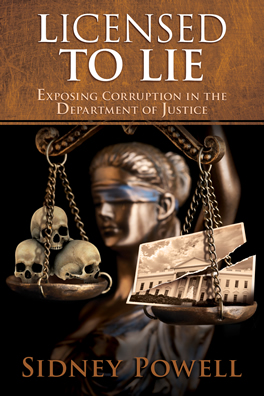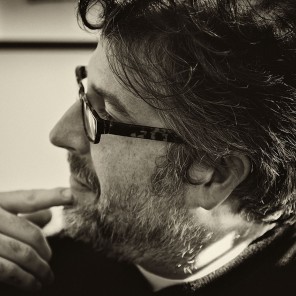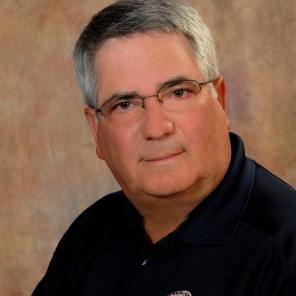THE FEDERAL PROSECUTOR
The Federal Prosecutor
On Monday morning, April 1, 1940, Attorney General Jackson gave the following speech to the United States Attorneys who then were serving in each Federal Judicial District across the country. These prosecutors were assembled in the Great Hall at the United States Department of Justice in Washington, D.C., for the Second Annual Conference of United States Attorneys.
In the speech, Jackson, who had been Attorney General for only three months, offered his views on what constituted proper, ethical conduct by federal prosecutors.
These remarks subsequently were published in 31 Journal of Criminal Law & Criminology 3-6 (1940) and 24 Journal of the American Judicature Society 18 (1940).
Prosecutors need to be reminded of these thoughts daily, so we quote him below.
The Federal Prosecutor
By Robert H. Jackson
Attorney General of the United States
April 1, 1940
“It would probably be within the range of that exaggeration permitted in Washington to say that assembled in this room is one of the most powerful peace-time forces known to our country. The prosecutor has more control over life, liberty, and reputation than any other person in America. His discretion is tremendous.
He can have citizens investigated and, if he is that kind of person, he can have this done to the tune of public statements and veiled or unveiled intimations. Or the prosecutor may choose a more subtle course and simply have a citizen’s friends interviewed. The prosecutor can order arrests, present cases to the grand jury in secret session, and on the basis of his one-sided presentation of the facts, can cause the citizen to be indicted and held for trial.
He may dismiss the case before trial, in which case the defense never has a chance to be heard. Or he may go on with a public trial. If he obtains a conviction, the prosecutor can still make recommendations as to sentence, as to whether the prisoner should get probation or a suspended sentence, and after he is put away, as to whether he is a fit subject for parole.
While the prosecutor at his best is one of the most beneficent forces in our society, when he acts from malice or other base motives, he is one of the worst.
These powers have been granted to our law-enforcement agencies because it seems necessary that such a power to prosecute be lodged somewhere. This authority has been granted by people who really wanted the right thing done—wanted crime eliminated—but also wanted the best in our American traditions preserved.
Because of this immense power to strike at citizens, not with mere individual strength, but with all the force of government itself, the post of Federal District Attorney from the very beginning has been safeguarded by presidential appointment, requiring confirmation of the Senate of the United States. You are thus required to win an expression of confidence in your character by both the legislative and the executive branches of the government before assuming the responsibilities of a federal prosecutor. * * *
Nothing better can come out of this meeting of law enforcement officers than a rededication to the spirit of fair play and decency that should animate the federal prosecutor. Your positions are of such independence and importance that while you are being diligent, strict, and vigorous in law enforcement you can also afford to be just.
Although the government technically loses its case, it has really won if justice has been done.
* * *
Reputation has been called “the shadow cast by one’s daily life.” Any prosecutor who risks his day-to-day professional name for fair dealing to build up statistics of success has a perverted sense of practical values, as well as defects of character.
Whether one seeks promotion to a judgeship, as many prosecutors rightly do, or whether he returns to private practice, he can have no better asset than to have his profession recognize that his attitude toward those who feel his power has been dispassionate, reasonable and just.
****
If the prosecutor is obliged to choose his cases, it follows that he can choose his defendants.
Therein is the most dangerous power of the prosecutor: that he will pick people that he thinks he should get, rather than pick cases that need to be prosecuted. With the law books filled with a great assortment of crimes, a prosecutor stands a fair chance of finding at least a technical violation of some act on the part of almost anyone.
In such a case, it is not a question of discovering the commission of a crime and then looking for the man who has committed it, it is a question of picking the man and then searching the law books, or putting investigators to work, to pin some offense on him. It is in this realm—in which the prosecutor picks some person whom he dislikes or desires to embarrass, or selects some group of unpopular persons and then looks for an offense, that the greatest danger of abuse of prosecuting power lies.
****
The qualities of a good prosecutor are as elusive and as impossible to define as those which mark a gentleman. And those who need to be told would not understand it anyway. A sensitiveness to fair play and sportsmanship is perhaps the best protection against the abuse of power, and the citizen’s safety lies in the prosecutor who tempers zeal with human kindness, who seeks truth and not victims, who serves the law and not factional purposes, and who approaches his task with humility.”
You can learn more about Robert H. Jackson by clicking here.












1 Comment
Great work. Keep it up and God’s Speed.